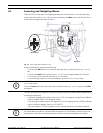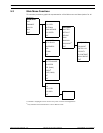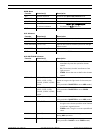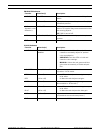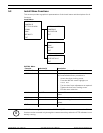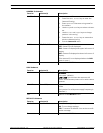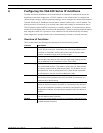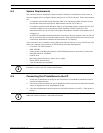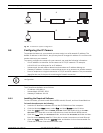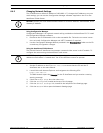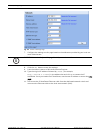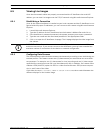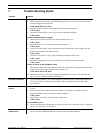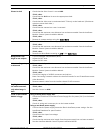
14 en | Configuring the VG4-100 Series IP AutoDome AutoDome Modular Camera System
F01U028033 | 2.0 | 2007.03 VG4-100 Series User’s Manual Bosch Security Systems, Inc.
6 Configuring the VG4-100 Series IP AutoDome
The VG4-100 Series AutoDome can be ordered with an optional IP module that allows the
AutoDome to transmit images over a TCP/IP network. It also allows users to configure the
camera display settings, camera operating settings, and to configure the network parameters.
The VG4-100 Series IP AutoDome incorporates a network video server in the IP module. The
primary function of the server is to encode video (and control data) for transmission over a
TCP/IP network. With its MPEG-4 encoding, it is ideally suited for IP communication and for
remote access to digital video recorders and multiplexers. The use of existing networks means
that integration with CCTV systems or local networks can be achieved quickly and easily.
Video images from a single camera can be simultaneously received on several receivers.
6.1 Overview of Functions
The IP module adds the following functionality to a VG4-100 Series system:
Function Description
Receiver You can use an MPEG-4 compatible hardware decoder (for example
the VIP XD) as a receiver. Computers with decoding software such
as VIDOS or computers with the Microsoft Internet Explorer Web
browser installed can also receive video images.
Video encoding The camera uses the MPEG-4 compression standard and ensures
that the data rate remains low even with high image quality and can
also be adapted to local conditions within wide limits.
Dual Streaming Encodes dual data streams simultaneously according to two individ-
ually customized profiles. This feature creates two (2) data streams
per camera that can serve different purposes. For example, one (1)
data stream for local recording and one (1) data stream optimized
for transmission over the Local Area Network (LAN).
Multicast Enables simultaneous, real-time transmission to multiple receivers.
The network must implement the UDP and IGMP V2 protocols as a
prerequisite for Multicasting.
Configuration You can configure all camera settings from a Web browser con-
nected to the local network (Intranet) or connected to the Internet.
You can also update the firmware, load device configurations, store
configuration settings, and copy these settings from one camera to
another.
Snapshots Allows you to take and store individual video frames as JPEG images
from the Web browser interface.
Backup You can save video images as a file on a computer’s hard drive from
the Web browser interface.



